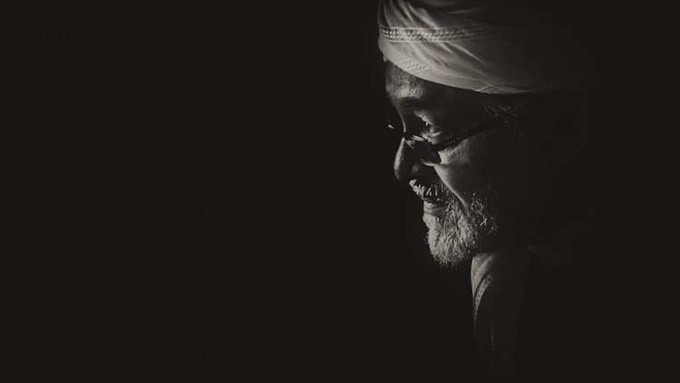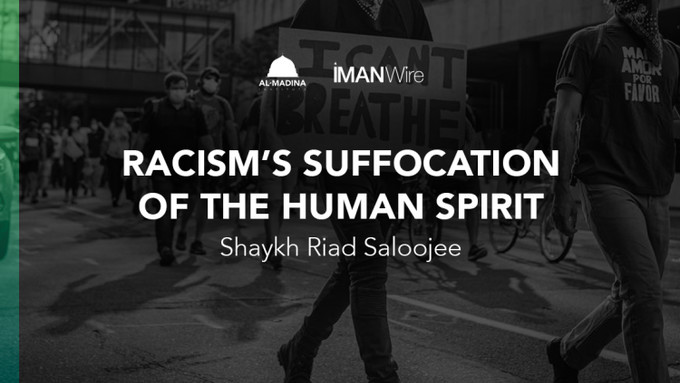The Right Kind of Barakah
Inspired by the Didactics of Shaykh Mohammed Amin Kholwadia
It has been the time-honored understanding and practice of Muslims to appreciate the concept of barakah and its transformative power in their religious and daily lives. Historically, the ummah eagerly sought to implement the obligatory Sacred Law, as well as the nuanced practices of the Prophetic sunnah, as part of societal norms that should be promoted throughout the community. Muslims understood that accessing barakah meant they would have access to rightfully enjoying life, not simply consuming the leftovers.
Various well-known ahadīth teach us that the Prophet ﷺ used to love right-handedness in his daily affairs; naturally, Muslims adopted this as part of their social life as well.1 While it was not against Public Fiqh to do things with the left hand, it was considered socially uncouth to do things such as publicly eat with one’s left hand. Muslim social order promoted pursuing barakah in all affairs, and right-handedness in performing tasks was considered highly praiseworthy. This is not to say that left-handedness was condemned or considered sinful, but rather right-handedness was much more praiseworthy.2
It is appropriate that the Divine Language of Allah’s Uncreated Speech is Arabic, which is written from the right to the left.3 As Muslim influence spread beyond the Ḥijāz, this rightly-written language became, fittingly enough, the lingua franca for the entire world as it was the language of official communication, high culture and formalized education. The historical evidence of Europeans adopting Arabic as a language of education in places like Spain is well-known and beyond the scope of this article. Suffice it to say, Arabic was the preferred language for most of the world for more than 500 years.
No other language ever achieved world relevancy as Arabic did, especially in its ability to interact with other languages. As one author perfectly stated, “The possibilities in Arabic for the use of figurative language are endless; its allusiveness, tropes and figures of speech place it far beyond the reach of any other language… Arabic loses on translation but all other languages gain on being translated into Arabic.”4 Arabic not only became the standard language wherever Muslims went, but it went on to influence the written standard of many other secondary languages within the Muslim world, such as Persian, Turkish, Urdu, Punjabi, Jawi, Hausa and Swahili.
It is also well known that most people are right handed, and therefore a language that goes right-to-left is easier for the right hand to write. A language that is written left-to-right is technically more difficult for a right handed person to write, as it involves using extensor muscles that are considerably weaker than flexor muscles of the arm and hand. Arabic takes advantage of this natural anatomic position of supination rather than pronation for a right handed person. With barakah comes ease.
While Muslims relied upon the Oral Tradition to transmit religious knowledge, the Written Tradition supplemented this mode of communication, as well as serving as the primary method to document daily affairs. Thus this secondary mode of transmission, the Written Tradition, and its language, Arabic, became an important tool in its own right. It is a remarkable achievement for a civilization that even a secondary principle becomes a valuable one, and thus written Arabic became synonymous with high culture and education. Historically, a Muslim was considered educated only if he/she had mastered both oral and written forms of Arabic.
An interesting aside may be made here about numbers which are written differently than Arabic letters as they are written left-to-right. This perhaps came about as written numbers were considered “added on” to the Arabic language, and not considered a part of the essence of Arabic, or even an essence of the Muslim community.5 Numbers had a role, certainly, but by no means were numbers the preoccupation of the Muslims, and to show this distinction, they were written in the opposite direction. Numbers, therefore, were part of Arabic, but not of it. The astute observer may note that in modern times, ironically, we refer to numerical digits as “Arabic” numbers, despite numbers violating the right-to-left essence of the language.
With the advent of colonialism and the downfall of Muslim political influence, Muslims began to view Arabic as something that should be left behind in the past in order to right the Ummah. The concerted efforts from both outside forces, such as the likes of Colin Crowe, and internal forces, such as the likes of Ataturk, painted Arabic as a hindrance to progress and prone to irrelevancy. Post-colonial history saw that languages that had historically used Arabic-influenced script, such as Turkish, etc. had moved away from a right-to-left script. Thus Arabic became relegated as a language useful for devotional purposes only, with little usefulness for Muslims in their social order. This worldview remains in many parts of the Muslim Ummah today.
This is not to castigate English because I am well-aware that this article and most of our communication is in English. A casual reader may question how this article has dealt with the greatness of Arabic yet is written in a distinctly non-Arabic language and script. My purpose is not to say that Muslims should refrain from using English whatsoever; it is a useful language for our current times, and to call for a broad scale Puritan insistence on using the Arabic language is foolhardy.
Rather, Muslims should appreciate the usefulness, ease and benefit of incorporating Arabic into their lives, both religiously and socially. We should cherish the barakah of using Arabic words; for example, there is benefit even in our casual speech to refer to Friday instead as “yawm al-jumu`ah”, as it accesses the blessing of the language. We should value the blessing of Arabic script, both reading and writing it, whether it is for religious purposes (whose benefits are extremely well-known) or not. We should extol the study of the Arabic language, not just in our young people, but on a social level among all members of our community. Even if we cannot all become masters of Arabic, we should strive to become lovers of this right-sided language with the intention that even if we lack proficiency in Arabic, our love for Arabic will be a means for us to speak this Divine Language in the Presence of the Divine in the Eternal Garden.
Recent history, especially for Muslims in the West, has witnessed the rebirth of a desire to learn and study Arabic in many pockets of the Muslim Ummah. This is indeed a blessing of the highest order, and we should strive to not be left behind as this process unfolds. We need to re-kindle within the Muslim ummah a love for Arabic on all levels—speaking, reading, writing, learning and cherishing—as it is a love for the language of the right hand. When we similarly begin to appreciate and love right-handedness in all of our affairs, including our language, as the Prophet ﷺ did in his, we will begin to see the right kind of barakah in our daily lives, and it may take us one step closer to being people of the Right Hand in the next world.
1. On the authority of A’ishah (may Allah be pleased with her), “The Prophet ﷺ used to love right-handedness in (donning) his shoes, in his dismounting, in his ritual purification and in all of his daily affairs (Bukhari and Muslim).” Imam al-Shawkani mentions in Nayl al-Awṭār that the wording of Ibn Ḥibbān as: “He ﷺ used to love right-handedness in everything including his dismounting and wearing of shoes,” and the wording of Abū Dāwūd as: “He ﷺ used to love right-handedness as much as possible in all of his affairs.”
2. It is extremely important to emphasize that there is nothing sinful or blameworthy against men and women who are naturally left-hand dominant. Muslims never sought to shame or embarrass anyone who was left-handed, but rather society promoted a culture that encouraged right-handedness for the sake of barakah. Our master, `Umar b. al-Khaṭṭāb (may Allah be pleased with him), was by many accounts left-handed (al-Bidāyah wa’l-Nihāyah 10/193), though some accounts indicate he was ambidextrous instead. Allah knows best.
3. It seems scriptural languages share this right-to-left characteristic. The languages of the Old Testament and New Testament, Hebrew and Aramaic, respectively, are also written in a right to left manner.
4. Joel Carmichael, The Shaping of the Arabs: A Study in Ethnic Identity (New York; MacMillan Company, 1967)
5. On the authority of Ibn `Umar (may Allah be pleased with him), the Prophet ﷺ said: “Indeed we are an unlettered nation, we neither write (down) nor do we calculate. The (days of the) month is such and such, meaning one time it is 29 (days) and another time it is 30 (days) (Bukhari and Muslim).”
Life & Culture Related Articles

Shaykh Seraj Hendricks: Obituary
An internationally recognised Islamic scholar, who saw spirituality, justice, and knowledge as integral to an authentic religious existence. Shaykh Seraj Hendricks, who passed away on the 9th of July 2020 at the age of 64, was a scholar of international repute, able to communicate and engage on the level of state leaders, religious scholars and the broader public.

Racism’s Suffocation of the Human Spirit
I can’t breathe. George Floyd’s last words, conveying, verbatim, Eric Garner’s last words, with echoes through a long chain of souls – Breonna Taylor, Michael Brown, Walter Scott, Freddie Grey, Jamar Clark, Alton Sterling, Stephon Clark and Botham Jean – is a testamentary call that should pierce every Muslim’s mind and heart.

Between the Coronavirus & Ramadan: On Vigilance & Building a Better Now
I pray that, as we continue to lovingly welcome and vigilantly discover the blessings inherent in Ramadan upon us, we awaken to all the moments and especially the moment that Allah has chosen to place us. A quotation from Charles Dickens, the opening to one of his novels, is worth reflecting on: “It was the best of times, it was the worst of times.”